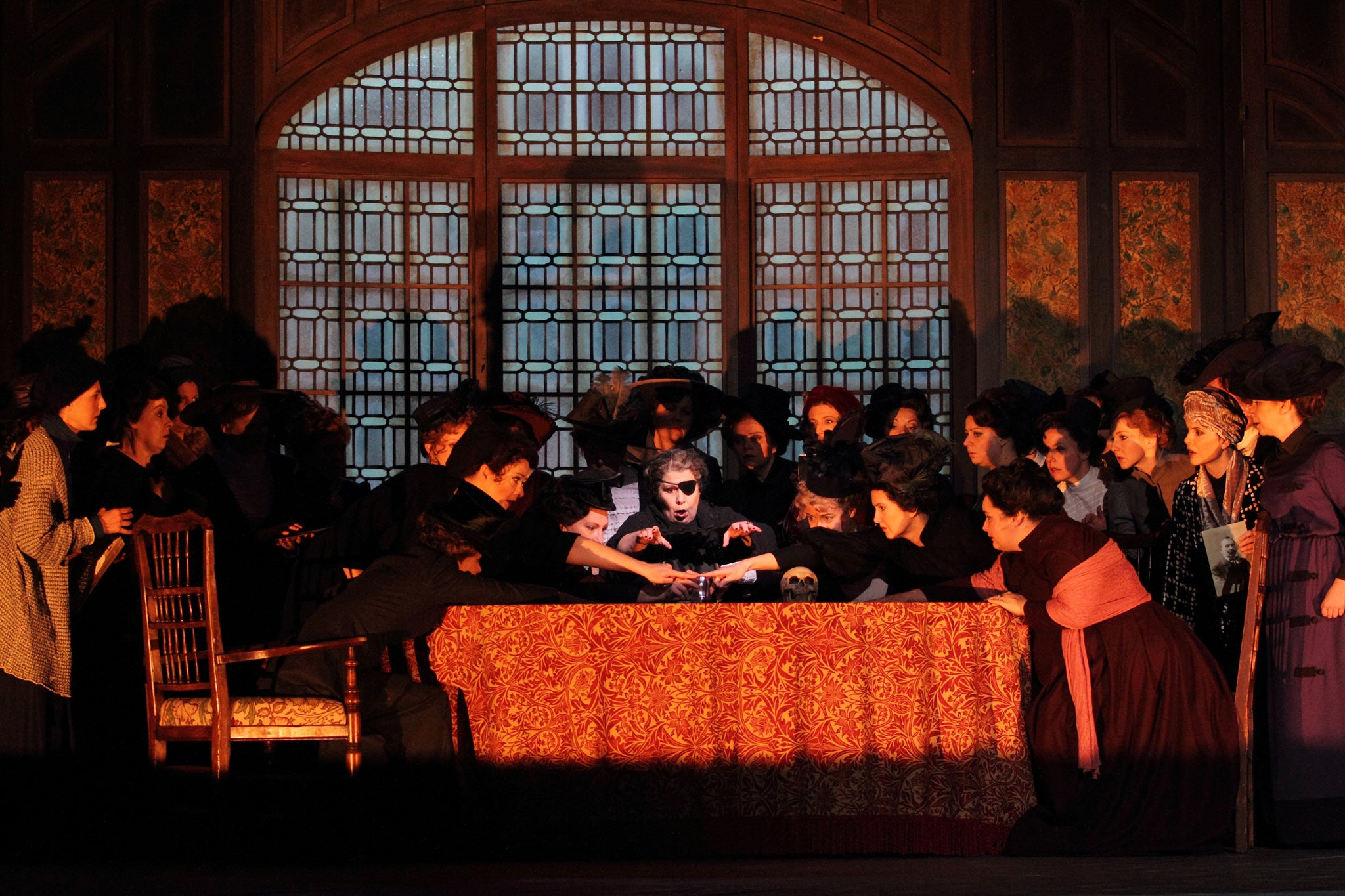Un ballo in maschera, review: Verdi's opera is hampered by woefully hammy acting
Royal Opera House, London

Your support helps us to tell the story
From reproductive rights to climate change to Big Tech, The Independent is on the ground when the story is developing. Whether it's investigating the financials of Elon Musk's pro-Trump PAC or producing our latest documentary, 'The A Word', which shines a light on the American women fighting for reproductive rights, we know how important it is to parse out the facts from the messaging.
At such a critical moment in US history, we need reporters on the ground. Your donation allows us to keep sending journalists to speak to both sides of the story.
The Independent is trusted by Americans across the entire political spectrum. And unlike many other quality news outlets, we choose not to lock Americans out of our reporting and analysis with paywalls. We believe quality journalism should be available to everyone, paid for by those who can afford it.
Your support makes all the difference.Assassinated at a masked ball at his opera house in 1792, Swedish king Gustav III was seen by Verdi as the perfect subject for an opera, but the censors in nineteenth century Italy kept demanding changes.
The king had to be demoted to duke, while the locale shifted from Stockholm to Szczecin to Florence to Gothenburg, and finally to Boston where the protagonist was a mere governor. Verdi was not too bothered: what mattered to him was the intimate story - of adulterous love versus honour, murky spiritualism versus transparent civic duty.
So it shouldn’t matter that director Katharina Thoma has updated it to the assassination in 1914 Sarajevo. Unfortunately, however, she’s opted for cardboard Gothic sets inhabited by walking statues, with a crowd out of Madame Tussaud’s, a medium with a Quasimodo sidekick, and woefully hammy acting from two of the principals.
Liudmyla Monastyrska has a magnificent clarion sound, but she has no more idea how to communicate the heroine Amelia’s terrors than Dmitri Hvorostovsky has with regard to the noble grief of her wronged husband Renato. Only when the stage is commanded by Joseph Calleja as Riccardo and Serena Gamberoni as his licensed jester Oscar does the drama take off: her sound has a brilliant purity, while his singing exudes such delicately vibrant warmth that he effortlessly transcends the defects of this patchy production.
Join our commenting forum
Join thought-provoking conversations, follow other Independent readers and see their replies
Comments